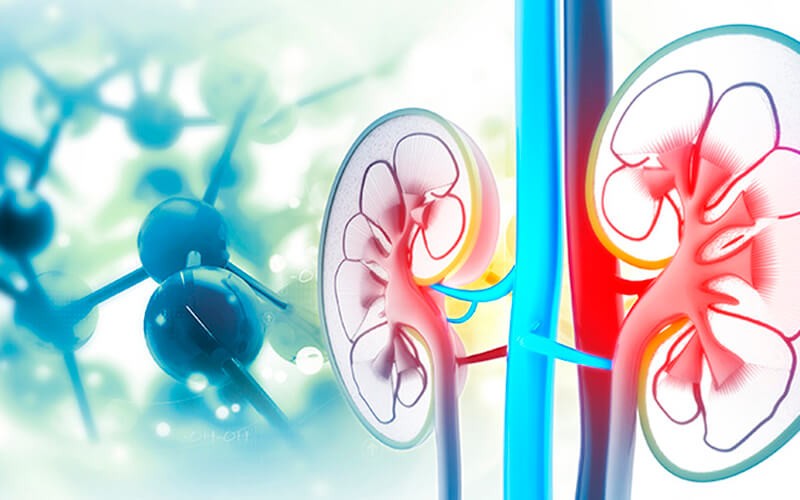“Accelerated antibody depletion may be relevant in patients at high risk of rapid renal function deterioration, because of high antibody titre and severe symptoms, related to immunological disorders.”

In this nephropathy the formation of sub-epithelial immune deposits and complement activation cause alterations in the basal membrane structure and damage to the glomerular filtration barrier, causing proteinuria.
The Membranous glomerulonephritis follows three main clinical courses: in 30% of cases spontaneous remission is observed, while in the remaining 70% of cases proteinuria persists and of these, half goes with chronic terminal renal failure.
In this pathology, the receptor 1 of type-M phospholipase A2 (PLA2R) is the main podocyte antigen involved in the pathogenesis of idiopathic pathology in adults. In addition, the link between serum levels of anti-PLA2R antibodies and the clinical development of the disease (proteinuria levels, response to therapy) has been shown.
To date, standard treatment includes administration of corticosteroid drugs, immunosuppressants and monoclonal antibodies. However, there are conditions in which the administration of drug therapy alone is insufficient to counteract high levels of antibodies.
The apheresis in this clinical context, and in particular the plasmapheresis Double filtration and the cascade filtration, which through a targeted purification of plasma from antibodies involved contribute to improve the clinical condition of the patient.
Molecules to be removed:
Anti PLA2RSuggested therapies:
PEX, DFPP, Cascade Filtration
The Goodpasture syndrome is suspected in subjects with haemoptysis or haematuria and is confirmed by presence of anti-MBG antibodies in the blood or in the renal biopsy sample. The prognosis is good when treatment is started before the onset of respiratory or renal failure. Treatment includes plasmapheresis, corticosteroids and immunosuppressants.
Molecules to be removed:
Antibodies anti-membrane basal gromelular, IgGSuggested therapies:
PEX, DFPP, Cascade Filtration
Ethiology is, in most cases, idiopathic.
It is thought, however, that microbial antigens bind to the glomerular basal membrane and activate a complement pathway through interaction with circulating antibodies, resulting in glomerular damage. Alternatively, circulating immune complexes could precipitate on the basal glomerular membrane.
The symptoms are different. It can be characterized by asymptomatic hematuria and mild proteinuria, a nephritis with overt micro or macrohematuria, proteinuria, oliguria, oedema, hypertension and renal insufficiency.
Among the treatments focused on the restriction in the diet of proteins, sodium and liquids, and, in the most serious cases, the treatment of edema and hypertension, there is also plasmapheresis, with the aim of removing the circulating antibodies involved.
Molecules to be removed:
Immune complexesSuggested Therapies:
PEX, DFPP, Cascade Filtration
- Rapidly progressive immunocomplex glomerulonephritis (rapidly progressive type 2 glomerulonephritis) complicates numerous pathologies, infectious and connective tissue, and also occurs with other primitive glomerulopathies. Immunofluorescence shows non-pecific immune granular deposits. The disease is responsible for up to 40% of rapidly progressive glomerulonephritis cases. The pathogenesis is usually unknown
- Double antibody disease (rapidly progressive type 4 glomerulonephritis) has antibodies of the anti-MBG and Ac ANCA type.
- Rapidly progressive idiopathic glomerulonephritis is rare and affects patients with immune complexes/connective tissue diseases/glomerulopathies. Absence of AC ANCA. It is also known as rapidly progressive V-type glomerulonephritis
The treatment is based on corticosteroids and plasmapheresis, with the aim of purifying the plasma from the circulating antibodies involved.
Molecules to be removed:
AutoantibodiesSuggested therapies:
PEX, DFPP, Cascade Filtration
